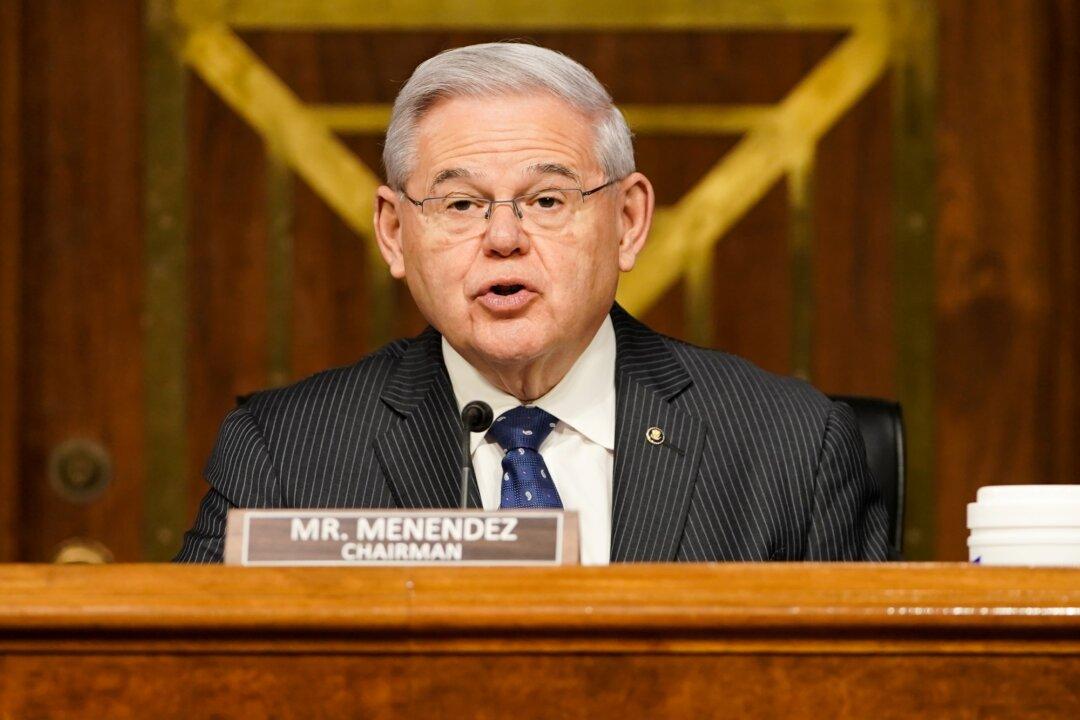Sen. Bob Menendez (D-N.J.) says the United States should divert fuel to Europe to assist with energy disruptions there, he stated during the Senate Foreign Relations Committee’s May 12 deliberations on aid to Ukraine.
Menendez made the comment in the wake of significant disruptions in Europe’s energy market, which include Russian energy giant Gazprom cutting gas supplies to Poland and Bulgaria in late April for failure to pay in rubles, and, more recently, Ukraine’s state-owned pipeline operator halting the flow of Russian gas to Europe from a station in Luhansk in the Donbas region on May 11.




